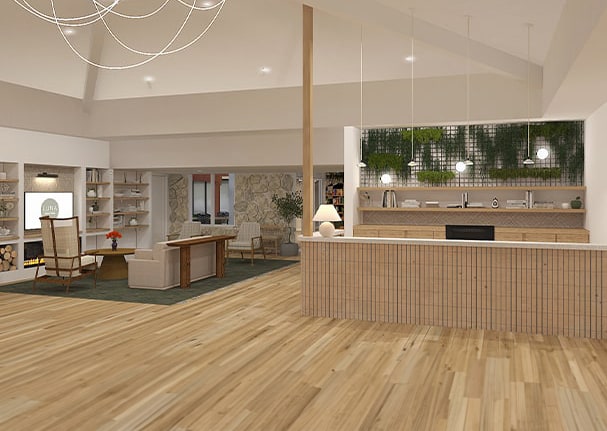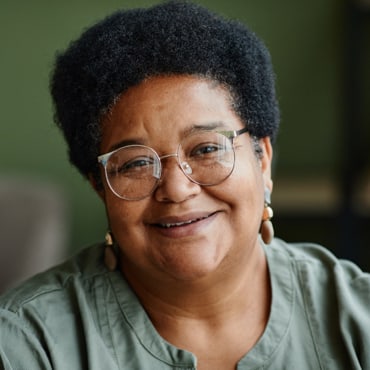Senior living communities are designed to provide different levels of care based on a resident’s needs. For individuals with memory impairments, assisted living is often the first step in receiving specialized care. However, as dementia and Alzheimer’s progress, there may come a time when assisted living can no longer meet their needs, and transitioning to memory care becomes necessary.
Some factors to consider when deciding if it’s time to move from assisted living to memory care include:
- Level of care needed
- Safety concerns
- Behavioral changes
- Social interaction
- Family support
Level of Care Needed
Assisted living communities typically offer assistance with daily activities such as bathing, dressing, and medication management. However, as memory impairments progress, individuals may require more advanced care such as help with toileting, eating, and mobility. Memory care communities have staff trained specifically to handle these needs and can provide a higher level of care.
Safety Concerns
Individuals with memory impairments are at an increased risk for accidents due to confusion and forgetfulness. As cognitive decline progresses, the level of supervision needed may exceed what assisted living communities can provide. Memory care communities have security measures in place to prevent residents from wandering and trained staff to monitor residents at all times.
Behavioral Changes
As dementia and Alzheimer’s progress, individuals may experience behavioral changes such as aggression, agitation, or sundowning. These behaviors can be difficult for assisted living staff to manage, especially if they do not have experience with memory impairments. Memory care communities have specialized programs and qualified staff that have the knowledge to handle these types of behaviors.
Social Interaction
Social interaction is an important aspect of the overall well-being of seniors. Assisted living communities often offer a variety of social activities, but as memory impairments progress, individuals may struggle to participate in these activities. Memory care communities have programs and activities carefully designed for individuals with memory impairments, allowing them to engage and socialize at their own pace.
Family Support
Caring for a loved one with memory impairments can be emotionally and physically draining for family members. Assisted living communities may offer some support services. Memory care communities have staff trained to assist families in coping with the challenges of caring for a loved one with dementia or Alzheimer’s. They also provide education and resources to help families better understand the disease and how to support their loved one best.
Cost
Assisted living and memory care communities can be expensive, but memory care is typically more costly due to the specialized services and staff required. It’s important for families to carefully consider their financial situation when deciding between assisted living or memory care for their loved one. Some communities may offer financial assistance or have payment plans available to help alleviate the financial burden.
Tips for Choosing a Memory Care Community
When considering a memory care community for a loved one, it’s important to personally visit and tour the community. This allows families to see the physical space, observe the day-to-day operations, and meet with staff to ask questions and get a feel for the environment.
It’s crucial to assess the community’s cleanliness, layout, and overall atmosphere to ensure it will be a comfortable and safe place for your loved one. Spending time interacting with current residents can also provide insight into their level of satisfaction and the community’s social dynamics.
It’s also important to inquire about the specialized services and programs available for individuals with memory impairments. Understanding the types of therapies, activities, and routines that are offered can help determine if the community is well-equipped to meet the unique requirements of your loved one.
Other tips for choosing a memory care community may include:
- Asking about staff training and qualifications, ensuring they are experienced in caring for individuals with memory impairments
- Inquiring about safety measures in place for residents, such as secure entry and exit points, emergency response systems, and fall prevention strategies
- Checking if there are any specialized therapy or rehabilitation services available, such as physical therapy, occupational therapy, or cognitive exercises designed to support memory function
- Researching the community’s reputation and reviews online, as well as seeking testimonials from other families who have had experiences with the community
It’s also helpful to involve your loved one in the decision-making process. This allows them to have a say in their living situation and can help with the transition to a memory care community.
Engaging them in tours and discussions about their preferences can make them feel more comfortable and involved in the process, easing anxiety and fostering a sense of control over their future.
Discover Comprehensive Memory Care at Luna Senior Living
Choosing a memory care community for a loved one can be daunting, but with careful research and consideration, you can find the right fit for their needs. Prioritize safety, specialized services, and social dynamics in your decision-making process.
Don’t hesitate to include your loved one in the process as well – their input is valuable and can help them feel more comfortable with the transition. With the right memory care community, you can rest assured that your loved one will receive the support and care they need in a compassionate and nurturing environment.
At Luna Senior Living, we understand the challenges and complexities of finding the right memory care community. That’s why we offer a variety of specialized services, state-of-the-art security measures, and a welcoming social atmosphere for our residents. Contact us today to learn more about how we can support your loved one’s unique needs in their memory care journey.




















